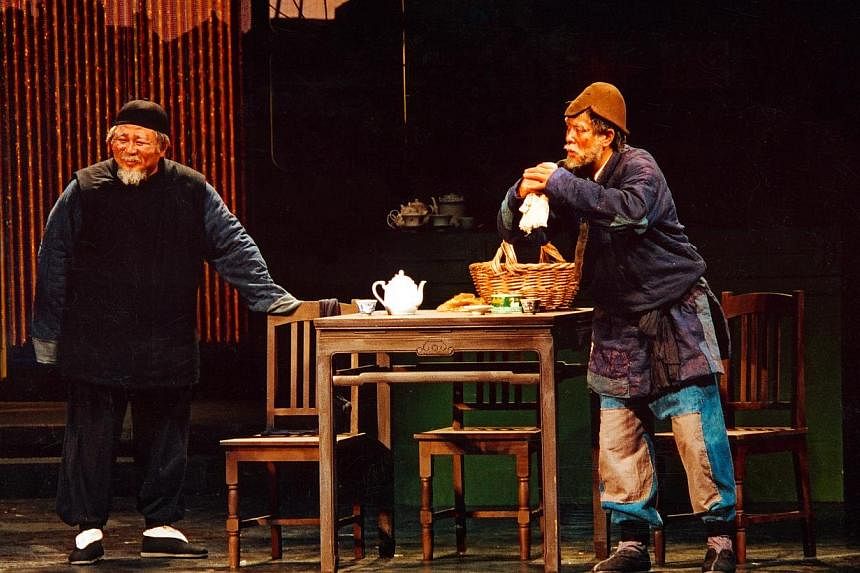Chinese actor Liang Guanhua got the jitters more than 15 years ago when he found out that he had been cast as Wang Lifa, the ambitious teahouse proprietor in Lao She's epic masterpiece, Teahouse - one of the most recognisable leading roles in the Chinese theatre canon.
Speaking in Mandarin over the telephone from Beijing, where he lives and works, the well-established actor says with a laugh: "I had told them, apart from Wang Lifa and the female characters, I could play any other part. This character is a dream role for almost every actor. For me to play it was like standing shoulder to shoulder with giants. I was terrified and nervous."
Teahouse follows the shifting fortunes of the Lao Yu Tai Teahouse in Beijing over almost half a century, from the twilight of the Qing dynasty in 1898 to World War II in 1945. The critically acclaimed 1958 play by master playwright Lao She paints a vivid picture of China in the first half of the tumultuous 20th century through the microcosm of the teahouse, featuring a veritable army of more than 70 characters.
Wang Lifa, in particular, does his best to adapt his hospitality to the changing times, but sees his hopes dashed repeatedly, until they become a burden too heavy to bear.
The Beijing People's Art Theatre will be staging the play at the Esplanade Theatre from March 5 to 8, nearly 30 years after it was first staged in Singapore at the Kallang Theatre in 1986.
Liang, 50, now at the top of the scale as a National Grade 1 Actor in China, had been in awe of his predecessor, Yu Shizhi, the late theatre luminary whose portrayal of Wang Lifa had prompted a meteoric rise to fame. As a young actor and understudy, Liang had watched Yu and other well-respected veteran actors perform in Teahouse, gracing the stage for the 1990 production in the minor role of Huang Pangzi (literally, Yellow Fatty).
So Liang was understandably nervous about stepping into Yu's shoes, as the actor had become synonymous with the role: "Yu Shizhi really brought out a lot of the character's despair. And in terms of our body type, he and I are different. He was quite skinny and angular, whereas I'm kind of plump."
The stockier Liang wondered: With his stature, would audience members believe that his Wang Lifa was an impoverished man? But his director Lin Zhaohua was convinced that he fit the part.
"The director gave me some really good insights," Liang says. "His reason was that, for a large teahouse such as this, to go through half a century of difficulties and keep the place open - if the proprietor was always pulling a long face, business would be terrible.
"He'd definitely be the jovial, welcoming sort, the kind of person that people warm to immediately, someone who's approachable... But he would bury his despair deep within himself. It's because of this that we would be able to move the audience deeply, to see someone who was so optimistic, be battered down by society and his environment."
Liang's co-star Pu Cunxin, 61, who plays the part of Fourth Master Chang, raved about the timelessness of the play.
He said in an e-mail interview: "What Lao She... did was to focus on ordinary people and their lives and the vernacular they spoke, regardless of region. He accumulated these observations of daily life, of the wisdom of living and the conditions of life."
When Beijing People's Art Theatre staged Teahouse here in 1986, the production was hailed by the audience as a masterpiece.
The late theatre pioneer Kuo Pao Kun was so deeply moved by the production that he wrote in his review of the work for The Straits Times that the production, which starred Yu, had reached "the pinnacle of world contemporary theatre".
Follow Corrie Tan on Twitter @CorrieTan


